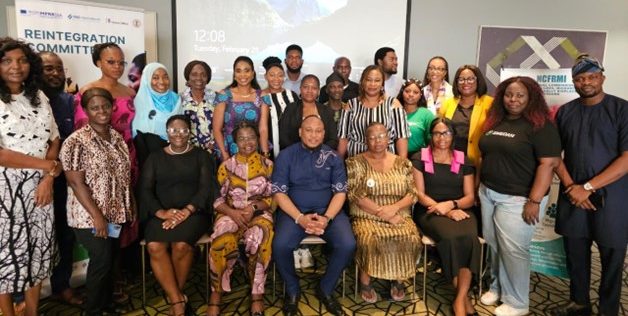As part of the project “Strengthening the Provision of Support for Reintegration of Vulnerable Persons, including Victims of Trafficking (VoTs)”, Returning to Nigeria (PROSPECT) – two capacity building workshops were conducted in the cities of Lagos and Benin, in February and April, respectively.
The second phase of the PROSPECT project supported the development of an Operational Workflow and Standard Operating Procedures (SOPs) for return and reintegration referrals under the Return, Readmission, and Reintegration Unit of the National Commission for Refugees, Migrants, and Internally Displaced Persons (NCFRMI). These documents aim to strengthen referral pathways among Nigerian stakeholders through institutionalised procedures that ensure the safety of returnees and the sustainability of their reintegration.
Building on the positive outcomes of Phase II, the project has now entered Phase III and continues to support the implementation of these tools. To promote sustainable and coordinated reintegration efforts, a series of workshops were organised to further strengthen the capacity of local implementing agencies to effectively utilise the Operational Workflow and SOPs.
The workshops targeted members of the Reintegration Committee under the auspices of the National Commission for Refugees, Migrants, and Internally Displaced Persons (NCFRMI). More than 50 participants — drawn from a diverse range of stakeholders, including government institutions, civil society organisations, and non-governmental organisations — took part in the workshops. International development partners such as the International Organization for Migration (IOM), the German Society for International Cooperation (GIZ), and IRARA contributed to the sessions by offering valuable insights on enhancing local ownership and coordination in return and reintegration (RRR) processes in Nigeria.
Overall, the workshops proved to be valuable and insightful for participants, who are now well acquainted with the Operational Workflow and better equipped to apply the SOPs to real-life case scenarios and their daily work.
While continued support is essential to fully embed these practices, the capacity building workshops represent a significant step towards raising awareness and fostering consistent, coordinated return and reintegration efforts across key institutions and regions.

